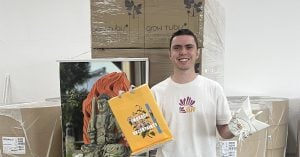Sustainability jobs have been in high-supply for a while now. As of late, the demand for occupations that involve a sustainability component has also been rising. Employees are looking for ways to participate in the green economy, due to the abundance of opportunities and a values-first rising mentality.
If you want to build a career in sustainability, but don’t know what your different options are, we’ve got you covered. Below, we share 3 key steps that will give you a bit more clarity on how you can become competitive in a sustainability field of your choice.
Key steps to build a career in sustainability
1. Carve your path by choosing a niche
The concept of sustainability is wide-encompassing, translating into every corner of the economy and society. Understanding the range of sustainability challenges and hence opportunities to contribute is a key step in setting up for a career in the field.
Sustainability can be understood as the approach to economic and societal development that ensures we meet the needs of today without compromising the ability of future generations to meet their needs. A popular framework that classified the main sustainability topics currently tackled by organizations around the world is the UN’s Sustainable Development Goals (SDGs).
Before exploring the different types of sustainability jobs, take the time to develop clarity on what sustainability means and the various areas of focus and pick a few that you are most interested in. The SDGs, for instance, include environment-focused areas such as climate action, protecting life on earth and life on land, and sustainable cities and communities, as well as social-focused areas such as ensuring clean water and sanitation and reducing inequalities.
Next, when it comes to finding the best way to contribute to addressing the sustainability challenge(s) you are most interested in, there are mainly two options. The first one is straightforward: getting a job with the main activity being environmental work, whether as an ecologist, biologist, forest manager, or conservation specialist, or social work – think of activist, social worker, or teacher. But this is not the only way to go about a sustainability career.
Specializing or upskilling on the sustainability front in your existing niche is the other option. Here, the options are abundant – below is a list to start from:
- Environmental lawyer
- Environmental engineer
- Environmental architect
- Environmental designer
- Climate tech entrepreneur
- Social impact entrepreneur
- Green marketing specialist
- CSR communications expert
- Sustainability reporting specialist
- Sustainability management consultant
2. Build a competitive skillset
As a next step, you’ll need to get familiar with the skills that hiring managers require for sustainability positions. Green skills – abilities and knowledge necessary to develop processes, businesses, and an economy with a positive environmental impact – are currently in high demand.
To start from, you can refer to the Green General Skills index, which identifies four main types of competences for environmental sustainability jobs:
- Engineering and technical skills – to help develop new products and solutions
- Science-based skills – to help build the infrastructure required for the transition to a green economy
- Monitoring and reporting skills – to help companies keep track of and comply with legal sustainability standards, as well as monitor and report on their impact
- Operational management skills – to help organize and lead the environmental projects and campaigns for internal and external audiences
Aside from these four key areas of competences, studies such as the industry survey conducted by UW Sustainable Management highlights other important skills for a sustainability leader, including: systems thinking and planning, effective communication, financial literacy and budget management, project management, strategic planning, and last but not least, empathy.
Part of these skills are definitely transferable from previous experiences, while others can be obtained via the huge number of academic programs, as well as training and programs by accredited specialized institutions, the subject of our next section.
3. Get sustainability credentials
To build a competitive skill set and show recruiters you are serious about a career in sustainability, credentials go a long way.
If your first option is to get a sustainability degree, know that it comes in many forms. There are Bachelor’s and Master’s programs entirely focused on sustainability, such as management for sustainable businesses, environmental law, environmental science, climate science, renewable energy, marine biology, or environmental design. Others, of which there are more and more, include sustainability in the curricula.
A specialized degree, however, is not always required, nor is it always the key to getting a job in the field, but that’s a topic for another time.
You may gain deeper knowledge about sustainability problems and specific approaches to addressing them via shorter-term certified courses, such as Harvard Business School’s Sustainable Business Strategy, the SDG Academy’s The science and global impact of climate change, and The Centre for Environment and Development Studies’ Climate Change Leadership free MOOC (Massive Online Open Course).
As the level of specialization required deepness, several training and certifications may be necessary or at least desirable.
Corporate sustainability reporting, for instance, is known for complex regulation, although this is decreasing as integration of different reporting systems is pushed forward by industry stakeholders. For now, different reporting certifications exist for the various frameworks and standards applied across markets. The most common ones are The Global Reporting Initiative (GRI) Professional Certification, The Sustainability Accounting Standards Board (SASB) Fundamentals of Sustainability Accounting Credential, and the Integrated Reporting <IR> Fundamentals of Integrated Reporting Certificate.
The construction sector also has its own green building movement that requires professionals a level of specialization. This is currently driven by LEED credentials offered by the U.S. Green Building Council, covering building design and construction, operations and maintenance, interior design and construction, neighborhood development, and homes.
At a more general level, sustainability practitioners can become accredited under two of the most respected programs out there: The International Society of Sustainability Professionals (ISSP) and The Association of Climate Change Officers (ACCO). The Sustainability Excellence Associate (SEA), designed by ISSP, demonstrates an understanding of core sustainability concepts and best practices, while the Certified Climate Change Professional® (CC-P®) Credential by ACCO aims to reflect dedication to professional development and competency in the fundamentals of climate change preparedness and strategic planning.








